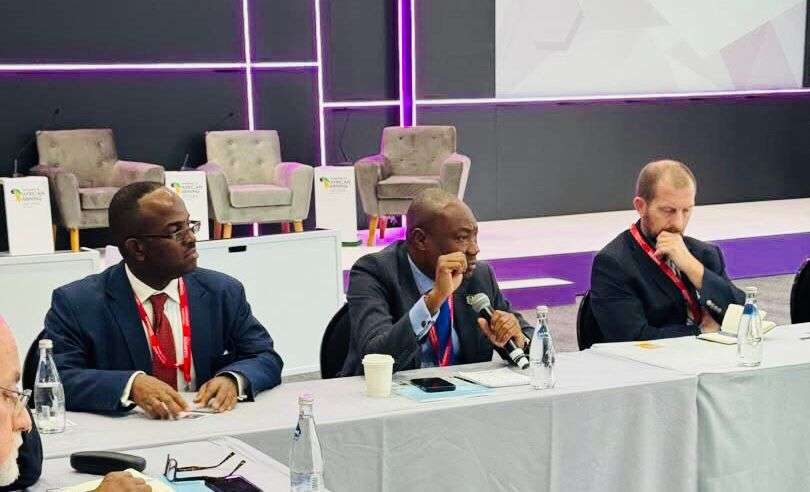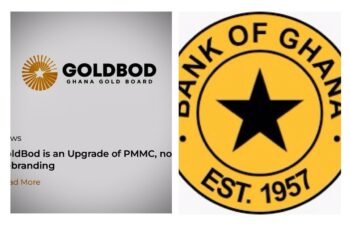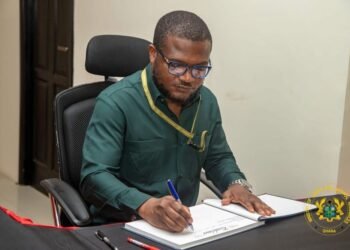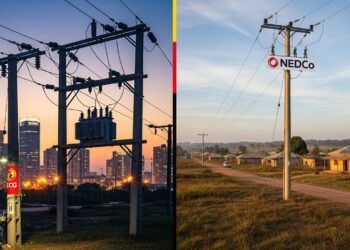On the sidelines of the Investing in African Mining Indaba, Mr. Martin Kwaku Ayisi, Chief Executive Officer of Ghana’s Minerals Commission, provided key insights into the strides Ghana has made in its mining sector.
The discussions took place during an industry intelligence session organized under the auspices of The Carnegie Endowment for International Peace, with a focus on technical cooperation and scientific collaboration between select U.S. government agencies, private sector innovators, and their African counterparts.
At a private roundtable dubbed “Technical Frontiers and Innovations in Mining Science for the Clean Energy Transition: Examining US-Africa Collaborations,” Mr. Ayisi underscored the critical need for increased partnerships in knowledge and technology transfer.
He emphasized that effective collaborations between African mineral-rich countries, the U.S. government, and American private sector innovators are pivotal in advancing mining technologies and sustainable practices.
“The future of mining lies in the effective exchange of knowledge and cutting-edge technology.”
Mr. Martin Kwaku Ayisi, CEO of Ghana’s Minerals Commission
Mr. Ayisi highlighted how Ghana’s diverse mineral resources, including gold, bauxite, manganese, and lithium, can significantly benefit from advanced mining technologies to optimize exploration and production.
A key challenge highlighted by Mr. Ayisi is the absence of a centralized geological database in Ghana. He explained that the lack of comprehensive geological data hampers the development and investment potential of mining projects.
“Without an integrated geological database, it becomes difficult to attract investors who rely heavily on accurate, detailed data to make informed decisions.”
Mr. Martin Kwaku Ayisi, CEO of Ghana’s Minerals Commission
Mr. Ayisi stressed the importance of deploying advanced exploration technologies, including geospatial analysis, remote sensing, and geophysical mapping, to provide comprehensive geological data.
These technologies, he explained, are vital for uncovering the full extent of Ghana’s mineral wealth and reducing investment risks.
As part of efforts to secure sustainable knowledge and skills exchange, the Minerals Commission is sponsoring sixty (60) staff members to pursue specialized mining courses at prestigious universities worldwide.
These include the Colorado School of Mines, the South Dakota School of Mines & Technology, and the New Mexico Institute of Mining & Technology in the United States.
“Capacity building is crucial in ensuring that the Minerals Commission can effectively regulate and promote the mining industry.”
Mr. Martin Kwaku Ayisi, CEO of Ghana’s Minerals Commission
Mr. Ayisi He emphasized that equipping staff with advanced knowledge and skills will enhance the Commission’s ability to oversee mining operations, enforce regulations, and support the sector’s growth.
Addressing the ‘Dig-and-Dump’ Culture

Mr. Ayisi expressed concern over the prevalent ‘dig-and-dump’ culture among artisanal and small-scale miners in Ghana.
This practice, characterized by minimal environmental consideration and inefficient resource extraction, poses significant challenges to sustainable mining.
“Artisanal mining, if not properly managed, can lead to severe environmental degradation.”
Mr. Martin Kwaku Ayisi, CEO of Ghana’s Minerals Commission
Mr. Ayisi advocated for the integration of sustainable mining practices, including land reclamation, proper waste management, and the adoption of environmentally friendly technologies.
The Minerals Commission, he noted, is working on initiatives to formalize the artisanal mining sector, providing miners with training, technical support, and access to modern equipment to improve efficiency and environmental stewardship.
In line with Ghana’s emerging policy shift towards value addition, Mr. Ayisi urged investors to prioritize mineral processing and beneficiation.
The Ghanaian government’s mineral beneficiation policy aims to ensure that the country harnesses the full potential of its natural resources by processing raw minerals locally before export.
“It is no longer sufficient to export raw materials without adding value.
“We must move towards a model where our minerals contribute more significantly to industrialization and job creation.”
Mr. Martin Kwaku Ayisi, CEO of Ghana’s Minerals Commission
This policy shift, he explained, will not only boost Ghana’s economy but also create employment opportunities and foster the development of ancillary industries.
The government is offering incentives to attract investments in mineral processing facilities, including tax breaks, infrastructure support, and streamlined regulatory processes.
The session was attended by key industry stakeholders, including Mr. Sulemanu Koney, Chief Executive Officer of the Ghana Chamber of Mines, and Dr. Ahmed Tijani, Manager of Corporate Affairs & IT at the Minerals Commission.
Both leaders echoed Mr. Ayisi’s sentiments on the need for greater collaboration, technological innovation, and sustainable practices in Ghana’s mining sector.
The discussions at the Mining Indaba reinforced Ghana’s commitment to transforming its mining sector through strategic partnerships, technological advancements, and capacity building.
As Ghana seeks to position itself as a leader in sustainable mining and clean energy transitions, the collaboration between government agencies, private sector innovators, and international partners will be pivotal.
The Minerals Commission’s initiatives, from sponsoring specialized education to promoting value addition, reflect a forward-thinking approach to maximizing the benefits of Ghana’s mineral wealth while ensuring environmental sustainability and economic resilience.























